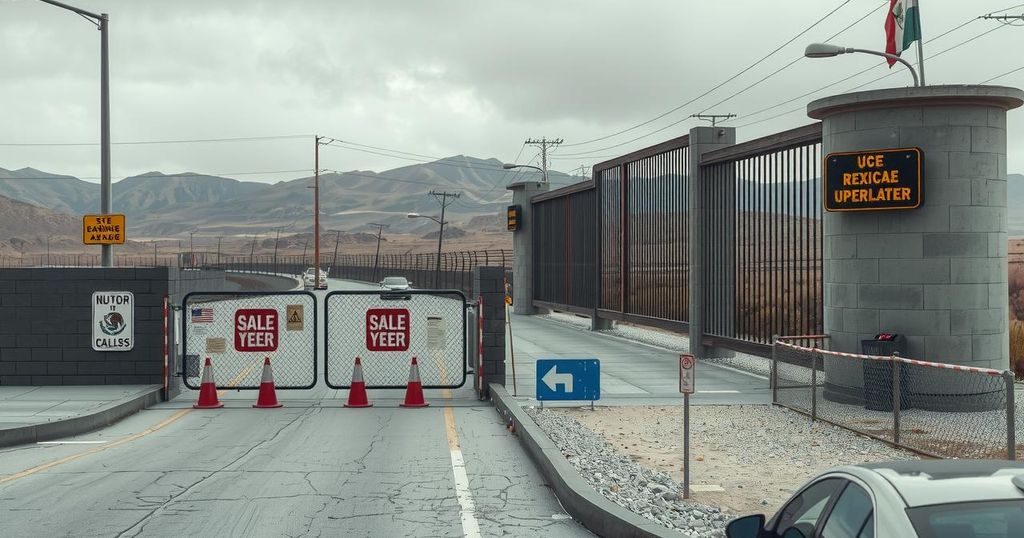Politics
ASIA, AZ, BOASBERG, BORDER SECURITY, BUKELE, CUBA, EL SALVADOR, GEORGETOWN UNIVERSITY LAW CENTER, HONDURAS, IMMIGRATION, LEGAL ISSUES, MARCO RUBIO, NEWS, NORTH AMERICA, PHILIPPINES, POLITICS, SOUTH AMERICA, STEVE VLADECK, TRE, TRUMP, TRUMP ADMINISTRATION, U. S, UNITED STATES, VENEZUELA
Isaac Bennett
0 Comments
Deportations of Venezuelan Gang Members Continue Despite Court Order
The Trump administration proceeded with the deportation of Venezuelan gang members despite a federal court order to halt removals. U.S. District Judge James E. Boasberg’s ruling aimed to protect individuals from unjust removal, yet the flights continued, prompting criticism. Legal experts and the ACLU are investigating these actions, which may violate established legal standards, while the deportees are sent to El Salvador for housing under a new agreement.
The Trump administration has controversially deported hundreds of Venezuelan immigrants involved with criminal gangs, despite a temporary federal court order halting these removals. U.S. District Judge James E. Boasberg’s order came while two planes carrying individuals were already en route to El Salvador and Honduras. Although he instructed for the flights to return, they proceeded, exemplifying a violation of judicial protocols.
Salvadoran President Nayib Bukele, in a social media post, noted the situation with a sense of irreverence and disclosed an agreement to house approximately 300 immigrants for one year at a cost of $6 million. Secretary of State Marco Rubio confirmed the transfer of over 250 members of Tren de Aragua gang to Salvadoran authorities. Legal expert Steve Vladeck remarked that the administration’s actions contravened the “spirit” of Boasberg’s ruling, which incentivizes future courts to issue more precise directives.
The deportations occurred under the Alien Enemies Act of 1798, a law historically invoked on very rare occasions. This law enables extraordinary actions against foreigners during declared wars, and it has provoked criticism, especially from the American Civil Liberties Union (ACLU), which is investigating the legality of the removals that appear to defy court orders.
Responses from Venezuela’s government denounced the deportations as reminiscent of historical injustices. The Trump administration has not confirmed the criminality of those deported nor provided specific details about their involvement. Dramatic footage from El Salvador showed the deportees being processed at a prison facility under strict security.
The administration contends that a proclamation regarding Tren de Aragua was signed just before the federal court ruling, raising questions regarding the timing of the deportations and the legal implications thereof. Immigration attorneys filed lawsuits on behalf of those vulnerable to wrongful deportation as gang members. Judge Boasberg emphasized the necessity for individuals at risk of unjust removal to be allowed their day in court, subsequently postponing deportations for up to two weeks. A hearing has been set for further argument on this critical legal matter.
In summary, the Trump administration’s recent deportations of Venezuelan gang members have raised significant legal and ethical concerns, particularly in light of a federal court’s temporary halting order. The actions illustrate a complex interplay between immigration law and executive authority, prompting critical examination from legal experts and civil rights advocates. The situation remains fluid, with ongoing legal proceedings to assess the implications for affected individuals and potential violations of constitutional rights.
Original Source: news.az




Post Comment